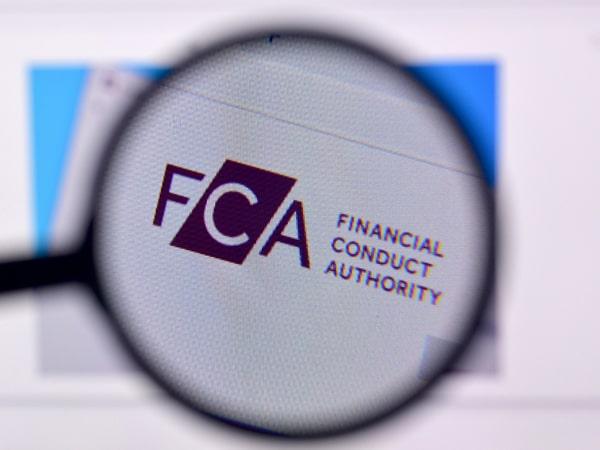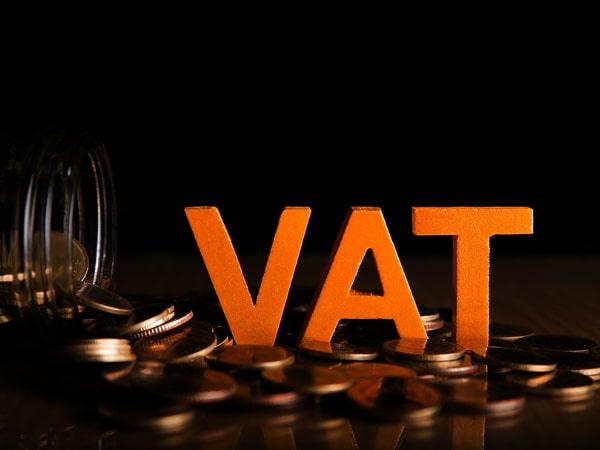Reviewer: Bohdan Popovchenko
Facebook
X
LinkedIn
Email
Telegramma
WhatsApp
- 2023-04-19
- 11 minutes read
Table of contents
- How to legally buy or exchange cryptocurrency in the UK?
- Taxation of Cryptocurrency in the UK
- Cryptocurrency exchanges
- Explanation of the legal status of cryptocurrency in the UK
- Anti-Money Laundering (AML) and Counter-Terrorism Financing (CTF) regulations applicable to cryptocurrency
- Crypto regulation in the UK
- Financial Conduct Authority's (FCA) regulatory framework for cryptocurrency
- Legal Challenges and Risks
- Future of Cryptocurrency in the UK
- Domande frequenti
- Conclusion
The answer to this question is definitely yes. The UK has not currently banned cryptocurrencies. So it is perfectly legal to use them or conduct transactions using cryptocurrencies.
In 2020, the UK passed a package of legislative changes aimed at regulating crypto companies. As well as preventing the use of cryptocurrencies for terrorist financing and money laundering purposes. Besides, the Bank of England stated in its 2020 report that stablecoins (cryptocurrencies pegged to fiat currency) – such as USDT – should be regulated.
The UK tax authorities, HM Revenue and Customs, treat cryptocurrencies as crypto assets for tax purposes. This means that profits made from the sale of cryptocurrencies are subject to capital gains tax. Income generated from crypto mining or staking may be subject to income tax.
So even though cryptocurrencies are legal in the UK, it is businesses that need to be careful about the legal terms of their use.
How to legally buy or exchange cryptocurrency in the UK?
Cryptocurrencies are not regulated by the Financial Conduct Authority (FCA) in the UK. But companies that trade cryptocurrencies are required to register with the FCA for anti-money laundering (AML) and counter-terrorist financing (CTF) purposes.
There are several steps to buying or exchanging this virtual asset in the UK. Consider the following steps:
Choose a reputable cryptocurrency exchange or broker
There are many crypto exchanges. For example, Coinbase, Binance, ecc. Look for an exchange that is well established, has a good reputation, and offers the cryptocurrencies you are interested in buying or exchanging. Also, make sure that the chosen exchange or broker is FCA-registered as required. The body has a register of ‘unscrupulous’ suppliers.
Create an account
Once you have chosen an exchange you will need to create an account. This usually requires you to provide personal information such as:
- your name, email address and identification document.
Another modern and convenient method is short automatic identity verification. You will need to take a selfie with a document that proves your identity.
Top up your account
To buy or exchange cryptocurrency, you need to fund your account on the exchange. You can usually do this with a bank transfer, debit or credit card, or by using another crypto asset. At the moment, it’s quite easy to do. You can deposit your account from either a personal or company account.
Place an order
Once you have funds in your account, you can place an order to buy or exchange cryptocurrencies. Be sure to check the fees and transaction charges associated with the transaction before completing it. This information is usually provided in the information boxes before buying a cryptocurrency.
Keep your tokens safe
At the moment, either hot or cold wallets are used for storing crypto. Another option is to store your assets directly in a wallet, which is provided to you by an exchange.
The easiest and cheapest option is to keep the crypto in the wallet the exchange gives you when you sign up for an account. But, on the other hand, these options are not always reliable and are also directly dependent on the stability of the exchange.
Hot wallets are wallets that are easy to use because they work on your usual devices and work with an internet connection. Consequently, they are convenient to use, but if you are worried about the safety of your tokens, you should use the following method. You need to pay attention to the fact that there is also a fee for transfers from wallet to wallet.
Cold wallets are devices that are not connected to the internet. Thus they are safe in terms of hacking. They can be thumb drives or external drives. So there is the problem of external influences on the device. If you lose the access key or the device itself gets damaged, you cannot get the asset back.
So, use the option that is most convenient for you.
Quickly select a jurisdiction and register your company anywhere in the world online

Taxation of Cryptocurrency in the UK
Taxation: The UK tax authorities, HM Revenue and Customs (HMRC), treat virtual assets as assets for tax purposes. This means that profits made from the sale of cryptocurrencies are subject to capital gains tax. Income generated from crypto mining or staking may be subject to income tax. In 2019, the HMRC issued guidance on the taxation of cryptocurrencies. That provides more information on how crypto transactions should be taxed in the UK.
In the UK, buying and selling cryptocurrencies can have tax implications. It is worth bearing in mind that although cryptocurrencies are not directly regulated in the UK, they are still subject to taxation. Income tax is also payable on income from cryptocurrencies.
It is important to note that all virtual assets are volatile and risky investments. You will not be protected by the UK government in the event of a cash loss.
Cryptocurrency exchanges
What is a crypto exchange? It is a business that allows customers to trade cryptocurrencies or digital currencies for other assets, such as fiat money or other digital currencies.
We can see that the crypto exchange works on the broker principle. That is, it exchanges your fiat currency money for crypto. Or one of these virtual assets for another crypto.
The best-known and most popular providers are Binance, Coinbase, Kraken, KuCoin, ecc.
Explanation of the legal status of cryptocurrency in the UK
Crypto-assets themselves are not legally regulated in this country. But, by contrast, the legal framework is in place for the providers of cryptocurrency in the country. That is, crypto exchangers. From 10 January 2020, all providers of such services must bearegistered with the FCA. Such registration is required to follow the country’s amended anti-money laundering and counter-terrorist financing legislation.

Anti-Money Laundering (AML) and Counter-Terrorism Financing (CTF) regulations applicable to cryptocurrency
Law enforcement agencies in Great Britain strictly control all areas of business subject to anti-money laundering (AML) regulations and impose significant fines for non-compliance.
Crypto is not considered legal tender in the UK, meaning that it is not recognized as a form of payment for debts and obligations. But, it is legal to buy, sell, and hold cryptocurrencies in the UK.
The UK government and regulators are closely monitoring the virtual assets industry. And it may introduce new regulations or restrictions in the future if they deem it necessary.
In 2021, the Bank of England and HM Treasury announced plans to create a central bank digital currency (CBDC). That would coexist alongside cash and bank deposits. This could have implications for the wider crypto industry in the UK.
Crypto regulation in the UK
Based on the information above, there is no specific regulation that directly involves cryptocurrencies or other similar assets. In our view, this is because the abrupt introduction of legislation in this area may be perceived negatively by users and businesses. Perciò, the government expects and is developing gradual measures of state administration of crypto.
Perciò, crypto-assets are only indirectly regulated in the UK, based on the country’s anti-money laundering and terrorist financing legislation.

Financial Conduct Authority's (FCA) regulatory framework for cryptocurrency
In January 2020 the FCA became the anti-money laundering and counter-terrorist financing (AML/CTF) supervisor for UK crypto businesses. This means that exchanges and custodian wallet providers must register with the FCA and comply with its AML/CTF regulations. The FCA also issued guidance on the regulatory status of cryptocurrencies in the UK. That states that certain types of tokens may be subject to existing UK laws and regulations.
Legal Challenges and Risks
Cryptocurrencies are a relatively new method of payment, savings, and investment both in the UK and the rest of the world. As a consequence, there are legal complications in dealing with such assets, taxation, ecc.
There is no direct regulation in the UK, but we consider this to be temporary. So with time, there will be a specific regulatory framework to deal with such assets. In the meantime, they can be used as freely as before. Cryptocurrencies make it convenient, fast, and relatively cheap to make transfers and use finances in a new way. Inoltre, many financial institutions have a positive attitude towards such a resource.
Risks include the taxation of crypto-assets in the UK. They are subject to income tax if you use cryptocurrencies as an investment vehicle.
So, there is another risk in such use. Because cryptocurrencies are volatile and not backed by governments, they do not allow owners to “hedge” against losses.
Future of Cryptocurrency in the UK
On 1 February, the UK government website released an official statement from HM Treasury regarding virtual assets and their subsequent regulation.
“The government will set out ambitious plans to robustly regulate crypto-asset activities – providing confidence and clarity to consumers and businesses alike” –
“Ambitious plans to protect consumers and grow the economy by robustly regulating crypto-asset activities have been announced by the government.”
These announcements have been made, so both consumers and businesses should be prepared for possible changes to virtual assets.
In our view, significant changes will also affect the UK cryptocurrency service providers. Such as exchanges, wallet providers, ecc.
On the other hand, we are left with positive hopes by the Treasury Economic Secretary Andrew Griffith’s statement:
“We remain steadfast in our commitment to grow the economy and enable technological change and innovation – and this includes crypto asset technology.
“But we must also protect consumers who are embracing this new technology – ensuring robust, transparent, and fair standards.”
Domande frequenti
is it legal to buy cryptocurrency in the UK?
Yes, buying cryptocurrencies is completely legal in the UK. You can use cryptocurrency exchanges to buy cryptocurrencies quickly, securely, and profitably.
Can I invest in cryptocurrency in the UK?
Yes, investing in crypto-assets is also completely legal in the UK. The principles of investing are quite similar to investing in securities. But, it is worth noting that income from crypto is subject to taxation in the UK.
Is investing in crypto illegal in the UK?
No, investing in cryptocurrencies is not illegal in the UK. You can do so freely. But you should note that income from cryptocurrencies is subject to income taxes in this country.
Is crypto taxed in the UK?
Not normally, virtual currencies are not taxed. This applies if you use cryptocurrencies for money transfers. But if you plan to use these assets as an investment vehicle, then yes. In that way income from investments is taxable on income.
Conclusion
Overall, yes, cryptocurrencies are completely legal in the UK. Any person or business can use it for any purpose that does not violate the country’s laws.
So you need to look at the country’s AML and CFT legislation. It is this law that mainly regulates crypto in the country. You can also seek legal advice from a lawyer.
Also, if you are planning to use cryptocurrencies as an investment tool, you need to know that income from them will be subject to income tax.
If you plan to open a business that provides services related to cryptocurrencies, such as an exchange, you need to register with the FCA to operate freely.













